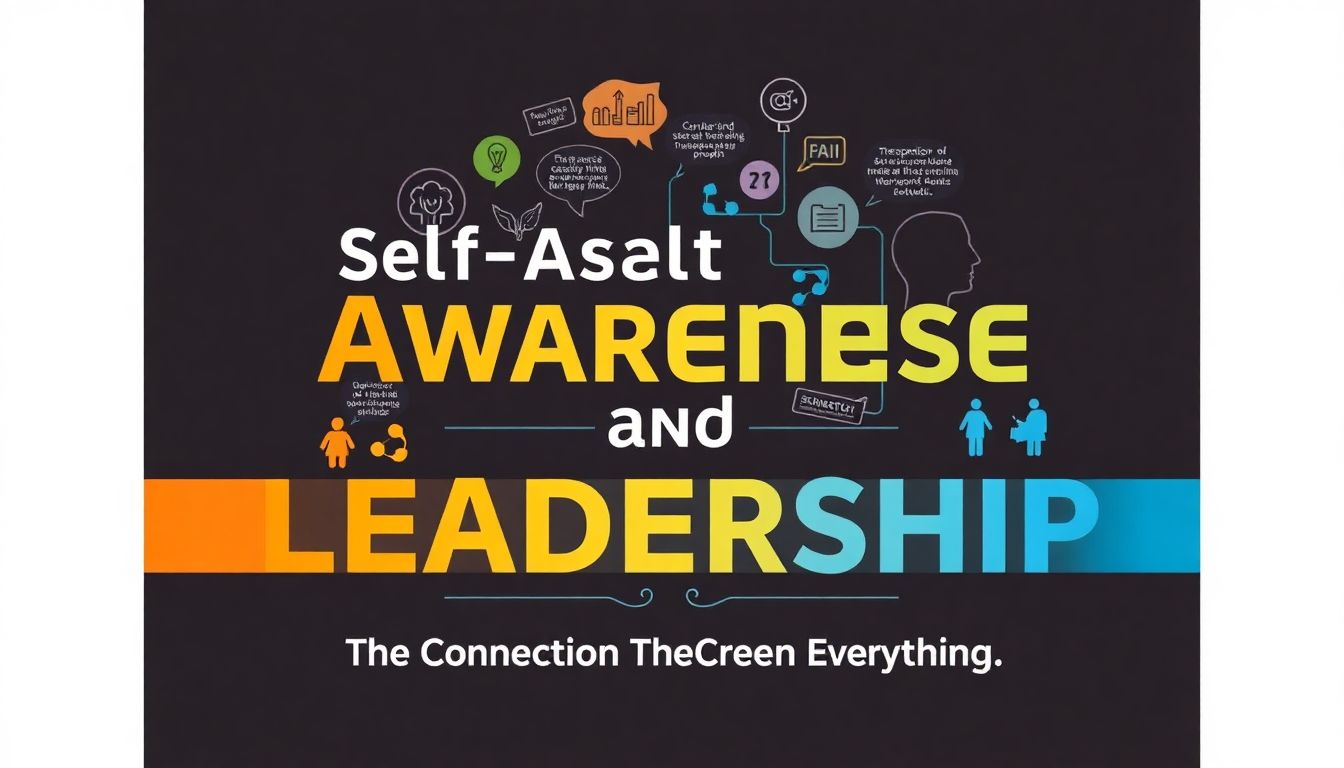Great leadership starts with knowing yourself. Before you can inspire, guide, or influence others, you need a deep understanding of your own values, emotions, behaviors, and motivations. That’s why self-awareness is not just a “nice-to-have” for leaders—it’s essential.
Whether you’re leading a team, managing a project, or hoping to step into a leadership role one day, cultivating self-awareness gives you the foundation to lead with authenticity, empathy, and impact. Let’s explore how self-awareness transforms leadership from the inside out.
Knowing Your Leadership Style
Self-awareness helps you identify your natural leadership style. Are you more of a coach, a strategist, a visionary, or a supporter? Do you lead through action, communication, inspiration, or structure?
By understanding your preferences, strengths, and blind spots, you can lead in a way that feels authentic and effective. You also learn to adapt your style when necessary, depending on the situation and the people you’re working with.
Leaders who lack self-awareness often default to a one-size-fits-all approach. They may over-rely on control, avoid conflict, or miss important cues from their team. In contrast, self-aware leaders remain flexible and responsive.
Managing Emotions and Reactions
Leadership brings pressure—and pressure reveals character. Self-aware leaders are better at managing their emotions under stress. Instead of reacting impulsively or taking things personally, they can pause, reflect, and choose how to respond.
This emotional regulation creates psychological safety. Teams trust leaders who stay calm in crisis, listen openly, and avoid blame. Your ability to manage your emotions directly impacts your team’s emotional climate.
For example, if you become frustrated during a difficult conversation, self-awareness allows you to notice the tension, breathe, and steer the conversation toward clarity instead of conflict.
Understanding Your Impact on Others
As a leader, your words, tone, and decisions carry weight. Self-awareness helps you understand how your behavior affects others. Are your team members energized or intimidated by your presence? Do your actions foster collaboration or create distance?
You can ask for feedback from your team and peers to gain insight. Simple questions like “How do you experience my leadership?” or “Is there anything I can do to support you better?” show humility and create space for honest dialogue.
When you understand your impact, you can adjust your communication and behavior to build stronger, more trusting relationships.
Leading with Empathy
Empathy is one of the most powerful leadership skills—and it starts with self-awareness. When you’re connected to your own emotions, you’re more capable of recognizing and respecting the emotions of others.
Self-aware leaders listen deeply, validate feelings, and see challenges from different perspectives. This not only strengthens team culture but also improves problem-solving, as people feel safe to share ideas and concerns.
Empathetic leadership doesn’t mean being overly soft. It means balancing compassion with accountability. Self-awareness helps you find that balance.
Setting an Example of Growth
When you commit to self-awareness, you become a role model for your team. Your openness to feedback, your ability to admit mistakes, and your dedication to personal development inspire others to do the same.
This creates a culture of growth, where learning is encouraged, vulnerability is safe, and continuous improvement becomes part of the team’s DNA.
Instead of pretending to have all the answers, self-aware leaders invite collaboration and show that leadership is a journey—not a fixed identity.
Making Aligned Decisions
Leadership involves making decisions that affect people, performance, and outcomes. Self-awareness ensures those decisions are aligned with your values and vision.
Before making a big choice, self-aware leaders ask themselves:
- Does this align with who I am and what I believe?
- Am I making this decision out of fear, ego, or purpose?
- Have I considered how this affects my team?
This level of reflection leads to more ethical, thoughtful, and impactful leadership.
Staying Resilient Through Challenges
Leadership is filled with uncertainty and setbacks. Self-awareness gives you the tools to navigate these moments with resilience. You understand your stress responses, know when to ask for help, and have strategies to stay grounded.
Instead of being defined by external outcomes, you stay anchored in your purpose. This keeps you focused, motivated, and steady—even when the road gets rough.
Becoming the Leader You Wish You Had
At its core, self-awareness allows you to become the kind of leader others trust, respect, and want to follow. You don’t need to be perfect. You just need to be real—honest about your strengths, aware of your growth areas, and committed to learning.
The leaders who make the biggest impact aren’t those with all the answers. They’re the ones who know themselves deeply, stay present, and lead with intention.
You can become that kind of leader. And it starts with the simple yet powerful decision to look within.
